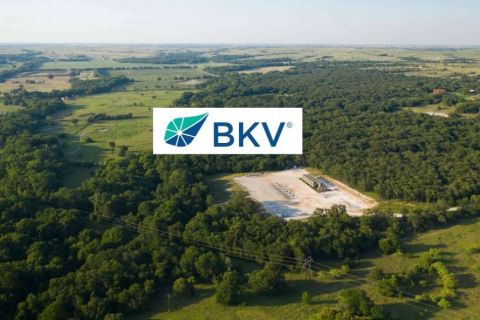
An oil platform is shown at Guanabara Bay in Rio de Janeiro, Brazil. More independent oil and gas companies are expected to participate in Brazil's upcoming bid rounds. (Source: Attila Jandi/Shutterstock.com)
RIO DE JANEIRO—As Petrobras shrinks its global E&P activities with farm-outs and asset sales, other oil majors such as Total, Statoil and BP have extended their presence in the country. But smaller operators are also looking for E&P investment opportunities in Latin America’s largest oil producing country.
Brazil’s oil and gas regulator ANP has scheduled two additional bidding rounds: one in September for blocks under concession and one in fourth-quarter 2017 for pre-salt areas. Market analysts believe the number of independent companies participating in the upcoming bid rounds will grow as operators increase investments in Brazil following recent regulatory changes for the oil industry.
For the 14th licensing round on Sept. 27, the rules of the concession regime were simplified to attract more small- and medium-sized oil companies. According to the ANP, the tender will allow a single exploration phase with an option to extend for technical reasons. In addition, Brazil eased local content requirements. Changes also include lower taxation policies for new frontiers and the allowance for investment funds to participate in the round.
Queiroz Galvão Exploração e Produção (QGEP), the largest independent oil operator in Brazil and the first independent oil company to operate in the presalt, is enthusiastic about this new phase for the oil industry in Brazil.
“This accelerated level of activity should serve as catalyst for investment by a number of major global oil companies,” the company said in a statement released in May. “Our current asset base provides QGEP with exposure to the key exploratory basins in Brazil, but we are also flexible and willing to take advantage of opportunities to add value to our portfolio.”
QGEP, which has been authorized to operate in deepwater and ultradeep water since 2000, has assets in eight of the main sedimentary basins along the Brazilian coastline. QGEP is the only Brazilian independent oil company that operates in the presalt.
In Brazil’s 13th bidding round, QGEP acquired 100% ownership of two concessions in the Sergipe-Alagoas Basin: the SEAL-M-351 and SEAL-M-428 blocks, which combined cover 1,512 sq km (584 sq miles). The blocks are between 80 km and 100 km (50 miles and 62 miles) off the coast in ultradeep waters with water depths ranging from 2,800 m to 3,300 m (9,186 ft to 10,827 ft).
Barra Energia do Brasil CEO Renato Bertani called Brazil’s basins the “most prolific in the world.” The independent oil company has a 10% interest in the giant Carcará Field, which has roughly 8 Bbbl of recoverable oil, and a 30% interest in the Atlanta Field. Both fields are in the Santos Basin.
“The new rules that have been implemented represent a significant change in the attitude of the government, which create an environment for investments in the [oil and gas] segment,” Bertani said. “There is also a lot of capital in the international financial system seeking investment opportunities. Thus, the improvement of the regulatory and fiscal framework will make Brazil much more competitive to attract these international investors.”
Bertani added that Brazil must continue efforts to get more medium-sized companies to invest in the Brazilian oil market. “The policy changes and the scheduled auctions are very important in order to reinforce credibility in this process.”
However, work is needed in other areas, he added, noting these include taxes and environmental licensing processes, which have delayed operations. “Yet, the changes are on the right track,” he said.
Eneva, pioneer in the reservoir-to-wire business model in Brazil, is also optimistic about the future of the oil and gas industry in the country.
“Due to the reservoir-to-wire model, Eneva can produce energy more efficiently and be more competitive in upcoming auctions, [while] contributing to the security and reliability of the Brazilian power system,” Eneva E&P Director Lino Cançado said.
Cançado explains that Eneva’s business model is strategic, considering Brazil’s need to evolve its energy supply model. “These discussions are very timely, as important outcomes have already been delivered. The 14th licensing round already includes important improvements,” he added.
Eneva holds more than 27,000 sq km (10,425 sq miles) of assets in the Parnaíba Basin in northeast Brazil’s Maranhão state. The thermal power plants are next to natural gas production facilities, which reduce costs and improve logistics.
The company operates seven natural gas fields with a daily production of up to 8.4 MMcm (3 Bcf).
Recommended Reading
Record NGL Volumes Earn Targa $1.07B in Profits in 3Q
2024-11-06 - Targa Resources reported record NGL transportation and fractionation volumes in the Permian Basin, where associated natural gas production continues to rise.
BP Profit Falls On Weak Oil Prices, May Slow Share Buybacks
2024-10-30 - Despite a drop in profit due to weak oil prices, BP reported strong results from its U.S. shale segment and new momentum in the Gulf of Mexico.
SLB Earnings Rise, But Weakened 4Q and 2025 Ahead Due to Oil Glut
2024-10-22 - SLB, like Liberty Energy, revised guidance lower for the coming months, analysts said, as oilfield service companies grapple with concerns over an oversupplied global oil market.
BKV Prices IPO at $270MM Nearly Two Years After First Filing
2024-09-25 - BKV Corp. priced its common shares at $18 each after and will begin trading on Sept. 26, about two years after the Denver company first filed for an IPO.
Woodside Reports Record Q3 Production, Narrows Guidance for 2024
2024-10-17 - Australia’s Woodside Energy reported record production of 577,000 boe/d in the third quarter of 2024, an 18% increase due to the start of the Sangomar project offshore Senegal. The Aussie company has narrowed its production guidance for 2024 as a result.
Comments
Add new comment
This conversation is moderated according to Hart Energy community rules. Please read the rules before joining the discussion. If you’re experiencing any technical problems, please contact our customer care team.






